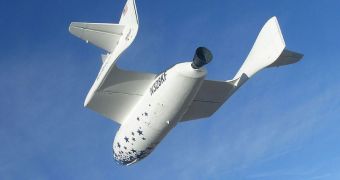In the coming decades, soot released by the exhaust of rockets flying to space could contribute significantly to global warming, In this regard, the private space industry may become a large contributor to climate change.
Recent ads by the companies developing orbital and suborbital technologies say that, in a decade from now, this booming sector will carry out about 1,000 suborbital flights per year.
Using these numbers as a starting point, investigators looked at how this massive increase in space-related activities would impact the environment and the atmosphere.
Soot and carbon dioxide are the main gases that are produced when rocket launch to space today. Therefore, the research focused on the potential effect that these elements will have on the world over the next decade or so.
“Rockets are the only direct source of human-produced compounds above about 14 miles (22.5 kilometers), and so it is important to understand how their exhaust affects the atmosphere,” explains the leader of the study.
Researcher Martin Ross is based at The Aerospace Corp., in El Segundo, California. He and his team submitted their paper for publication in an upcoming issue of the esteemed scientific journal Geophysical Research Letters.
The computer models that simulated the effects of the space industry determined that spacecrafts would place vast amounts of soot (black carbon) at an altitude three times higher than that of airline traffic.
The main difference between this type of soot and the one introduced in the lower atmosphere by common human activities is that, at lower altitudes, the chemical falls to the ground faster.
It can however remain in the upper atmosphere for years on end, acting as an absorbent for sunlight that would otherwise make its way to Earth, LiveScience reports.
“The response of the climate system to a relatively small input of black carbon is surprising. Our results show particular climate system sensitivity to the type of particles that rockets emit,” says researcher Michael Mills.
The expert, who holds an appointment at the National Center for Atmospheric Research (NCAR), in Boulder, Colorado, says that elevated concentrations of soot in the air could contribute to global climate change.
“Climate impact assessments of suborbital and orbital rockets must consider black carbon emissions, or else they ignore the most significant part of the total climate impact from rockets,” Ross adds.
“This includes existing assessments that may need to be brought up to date,” he concludes.

 14 DAY TRIAL //
14 DAY TRIAL //